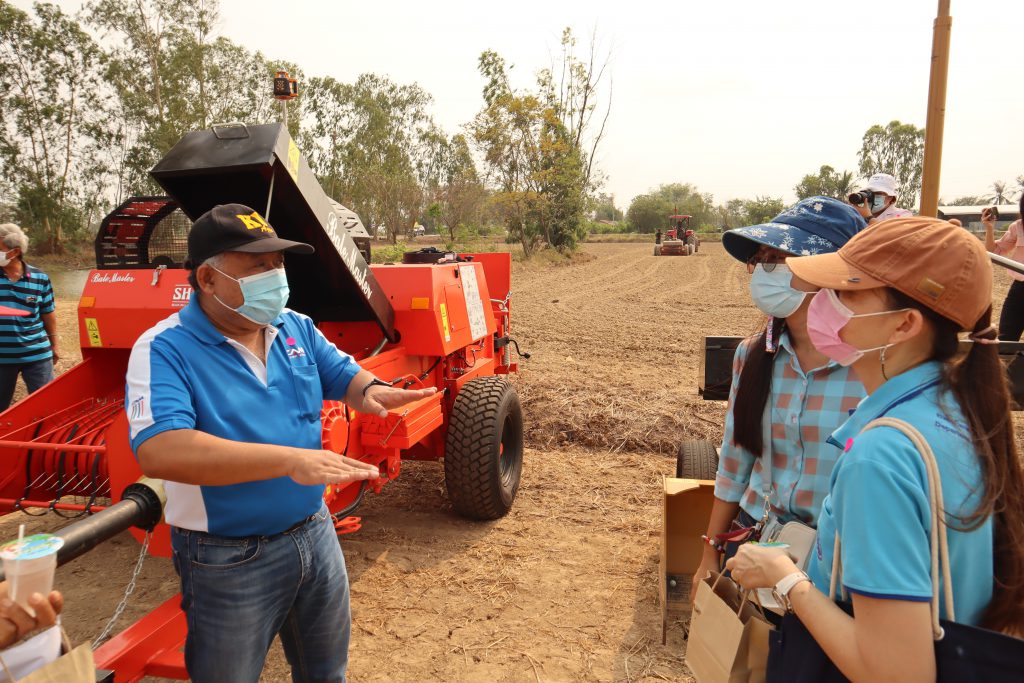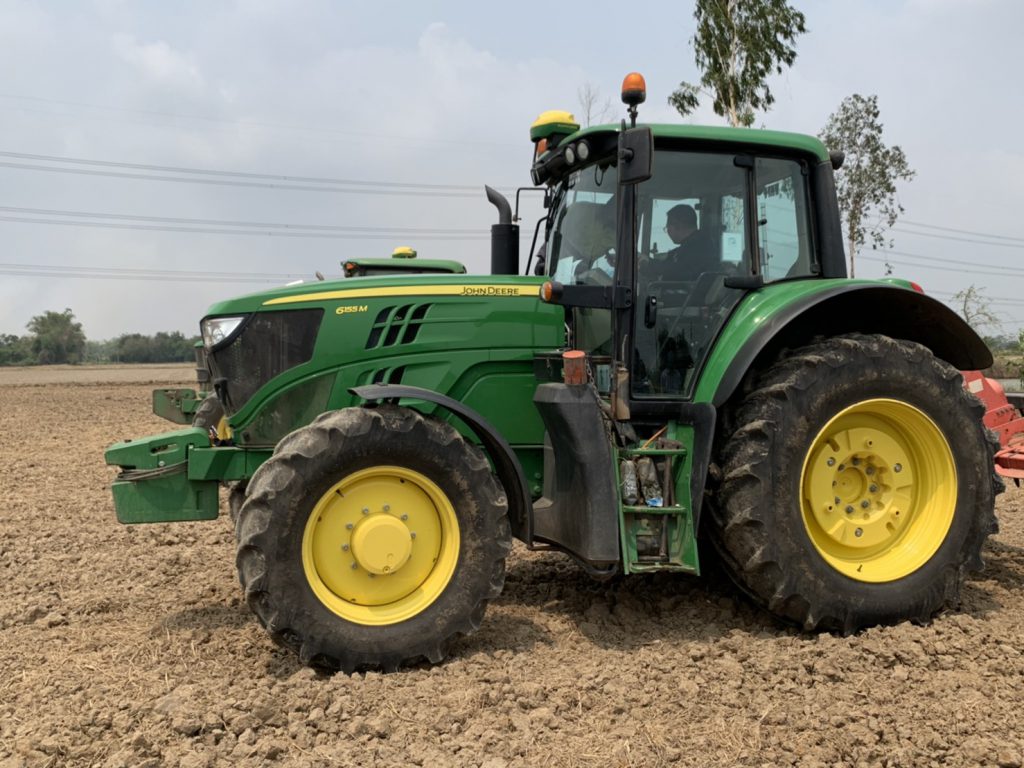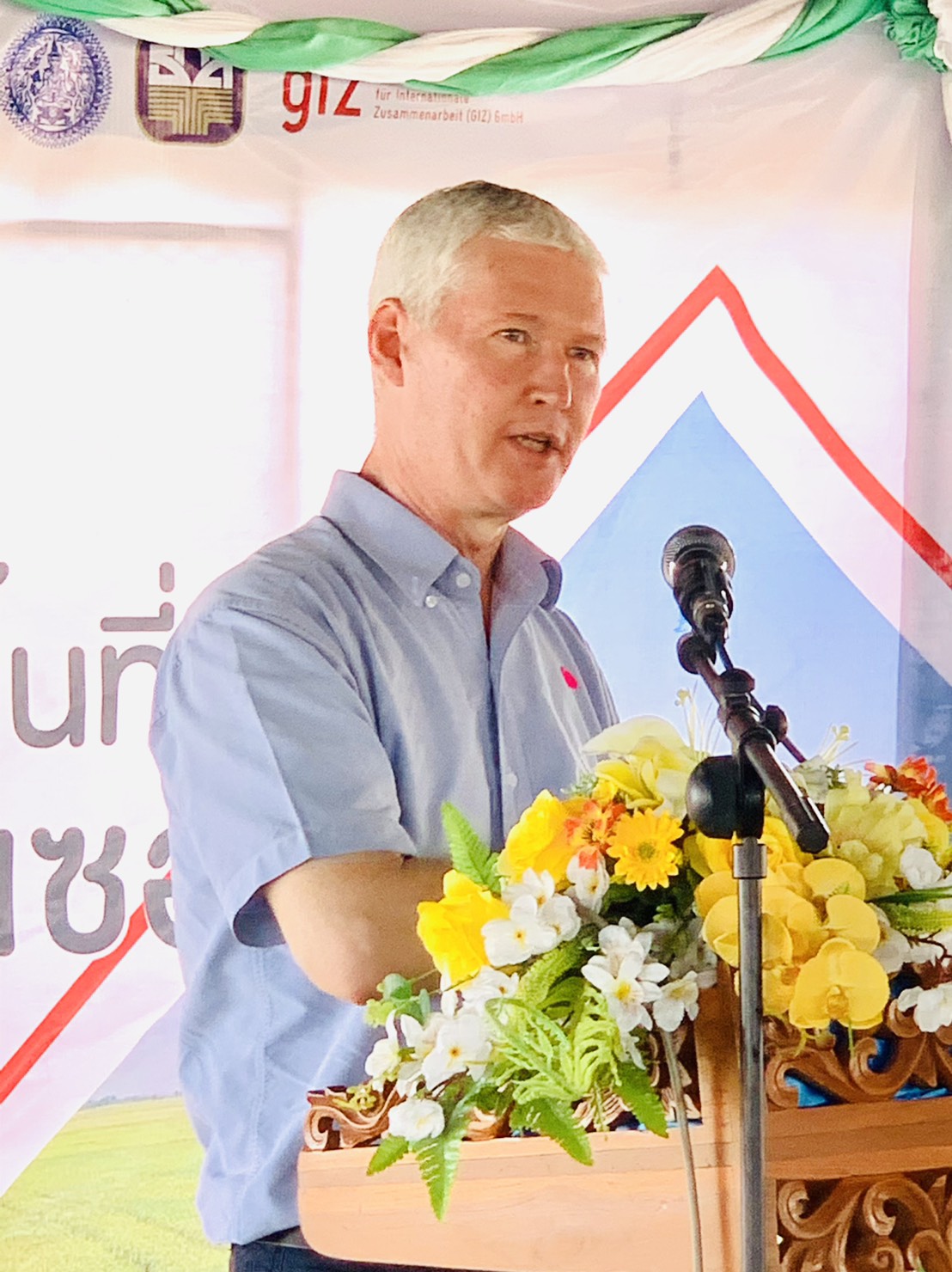A climate–friendly agricultural technology will help transform the Thai rice sector towards sustainable and low-carbon rice farming practice
Ayutthaya Province, 17 March 2021 – Deutsche Gesellschaft für Internationale Zusammenarbeit (GIZ) GmbH through the Thai Rice NAMA project in cooperation with the Rice Department organised ‘Laser Land Leveling in Rice Demonstration Event’ at Sam Bandit Subdistrict, U-thai District, Ayutthaya Province. The event aims to spark the transformation of Thailand’s rice production sector, replacing current practices with more sustainable and less methane-emitting approaches with the implementation of new agricultural technologies and practices – Laser Land Levelling. This shift will strengthen the levels of sustainable development by generating jobs and improving the livelihoods of farmers with better economic conditions and increased health levels.
This demonstration site is aimed at enabling farmers and local agricultural staff to learn about sustainable and low-carbon rice farming practice including the Laser Land Levelling (LLL) technology, Alternate Wetting and Drying (AWD), Site Specific Nutrient Management, Straw and Stubble Management. These four technologies helps farmers increase rice yields, save water while reducing greenhouse gas emissions.

Ardchaichan Liangprayoon, Director-General of Rice Department, said the LLL and the AWD method help decrease inappropriate use of farm inputs and depleted natural resources while reducing methane emissions. The efficient use of water and fertilisers also helps farmers reduce cost whereas improving better farming practice.
“The Rice Department has a key role to support smallholder farmers to transform their traditional farming into a climate-friendly low-carbon rice farming practice. The demonstration site showcases how farmers can reduce methane emission with the new rice farming method. We hope to expand this method to the six targeted provinces in the Central Plains—Ayutthaya, Ang Thong, Chainat, Pathumthani, Sing Buri and Suphan Buri—regarded as the rice attic of the country,” he said.


“The implementation of such new agriculture technology as Laser Land Levelling (LLL) not only enhance smallholder farmers’ capacity but also generate sustainable income and reduce the environmental impacts,” he said.

Ole Henriksen, Project Director of Thai Rice NAMA, said “To lead the country toward its security, prosperity and sustainability, all players need to work closely to systematically transform the Thai rice sector. The Thai government as a policymaker can support farmers to put in practice the innovative agricultural technologies essential for long-term development and economic growth,”
Thai Rice NAMA has a long-term development framework with an established policy decision-making process through policy advisory committee, project steering committee, and sub-national steering committee at provincial level by organizing capacity-building activities on sustainable and low-carbon rice practice, supporting financial mechanism for rice farmers and service providers, and developing the implementation strategy with 100,000 farmer households expected to benefit from the project. The targeted areas of implementation Ayutthaya, Ang Thong, Chainat, Pathumthani, Sing Buri and Suphan Buri provinces.

Sinsamut Kongprayot, a rice farmer in Ayutthaya, has adopted the Laser Land Leveling method into practice in his 25 rai plot, he said. “The LLL technology helps me effectively manage my rice-farm land plots and save water. I do not have to pump water all day and night for use in my rice fields. These low-carbon rice farming technologies should be accessible for all farming communities. Farmers can help transform the Thai rice sector towards sustainability,” he said.


